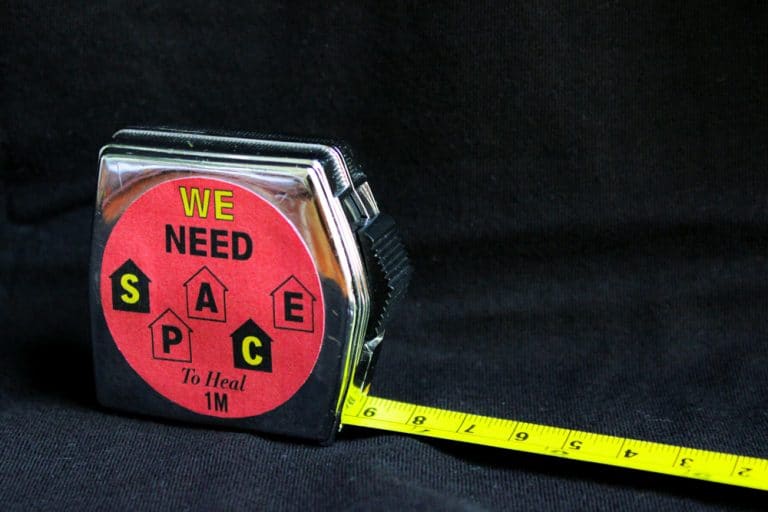How social isolation affects your mental health and what to do about it
As the UK has been put ‘on hold’ under its government-ordered lockdown, people are only realising now that COVID-19 is here to stay, at least for the foreseeable future. Because we are slightly behind other European countries, we can only make an educated guess and speculate that this period of social isolation could last up to 4 months (or even more).
In the torrent of news related to the pandemic, there seems to be a severe drought of coverage on how the coronavirus affects our mental health, our anxiety levels or even our OCDs. Here are a few tips on coping with being cooped up.
In my attempt at coming to terms with the crisis over the last few weeks, one idea managed to keep me grounded. Like many, I was only sure of one thing: I am doing all I can, the best I can. During these uncertain times, it’s easy to get lost in the noise but recentring back on yourself can sometimes help. You as an individual can stay at home and can keep people safe. For the time being, this is what the majority of us can do. It’s almost anticlimactic that in the midst of a global pandemic the only thing we can do to help is staying indoors, but we just need to do it.
As the initial shock of forced closures and isolation finally settled in, we are left with the daunting question: so what now?
Stop putting pressure on yourself
First and foremost, don’t put pressure on yourself to be productive. With so much free time on our hands, there is the sense that this could be seen as a perfect opportunity to finish projects, and although this might be true, adding extra pressure on your already stressed-out self could be detrimental to your mental health. Your mental wellbeing should be the most important thing right now. Identifying triggers can be a great place to start. Being online can be a minefield and lead to distress—muting apps and being selective about which news you decide to read can help reduce stress levels.
Rearrange your space
As we are all currently homebound, your surroundings can also make a real difference. Putting time and energy into making your immediate space more pleasant can be rewarding, and can also help you pass the time. Rearrange your space, it’s a win-win situation.
Explore your hobbies
Utilise your (indoor) hobbies. Using these quiet times to get back into activities you enjoy can be an endorphin release that will smooth out the days.
Stay connected
Keep in touch, stay connected. The only upside of the good ol’ rona happening right now is how interconnected we are through social platforms and numerous other apps. Social media may not be the perfect remedy to ‘keeping it together’, but there’s plenty of other platforms that can keep you connected with friends and loved ones. House party, Zoom, Whatsapp, you name it, I love it. Check out Houseparty and 3 other apps to entertain yourself during a coronavirus lockdown.
In response to the current crisis, many individuals and communities have taken things online in order to provide us with classes, parties and companions. London voguer Jay Jay Revlon is holding voguing classes via Zoom. Dalston Superstore is offering a plethora of live performances and classes from the many talents who work there.
Online, different areas and communities formed mutual aid groups. Most notable is LGBTQ+ COVID-19 mutual aid group, which is specifically for queer people and offers numerous online activities such as streams house parties every Friday. There are so many of these helping people feel connected and providing opportunities to organise some entertainment and help vulnerable people. The majority of these groups can be found by searching ‘COVID-19 mutual aid group’ and a specific area and community.
Ask for help
What if you feel like you are in need of substantial support? Many UK charities have added more services to help with mental health needs during COVID-19. Anxiety UK has extended helpline hours and run weekly webinars from its YouTube channel on topics relating to anxiety and the current situation.
Yale has made its science of well-being course free during the pandemic. Rethink Mental Illness and Mind are offering resources and advice on how to manage your mental health during this time. Another service, not free this time but definitely useful, online and mobile therapy company Talkspace offers virtual councillors and therapists for individuals seeking mental health support.
Summer is just around the corner, and although the pandemic still dominates the globe, it is temporary. At some point, social distancing will be a far off memory. In the meantime, stay home, keep your mind and body healthy, and remember that you’re doing your best.
For immediate support Samaritans lines are open 24/7. Mind UK offers support lines 9am-6pm.
– Samaritans
– Mind UK 0300 123 3393





